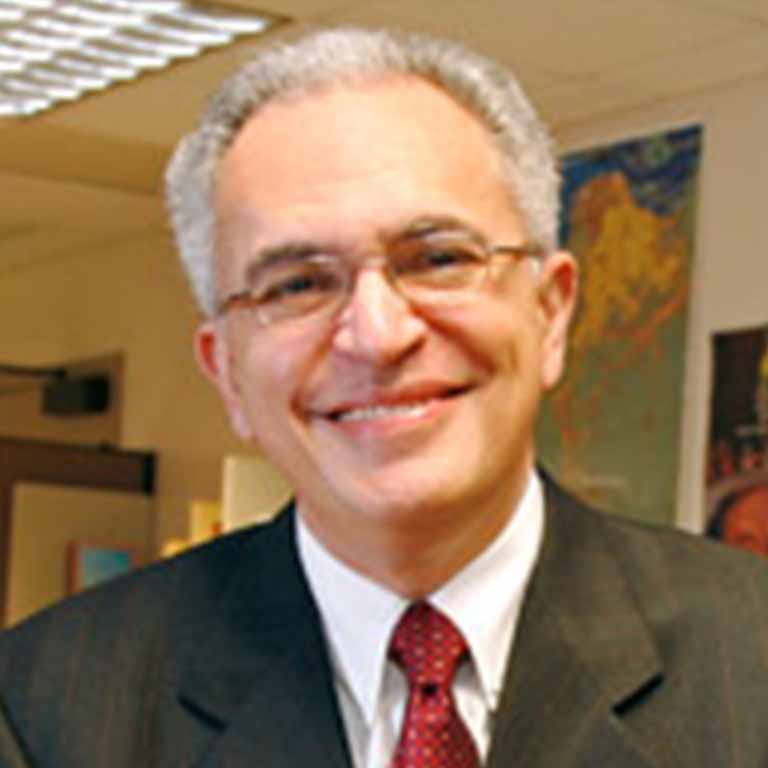- Ph.D., Social Anthropology, University of Florida, 1975
- M.A., Latin American History, University of Florida, 1969
- B.A., Spanish American Literature, Spring Hill College, 1968

Emilio Moran
Distinguished Professor Emeritus
Rudy Professor Emeritus

Distinguished Professor Emeritus
Rudy Professor Emeritus
Contemporary society problems cannot be understood with methods designed for studying largely sedentary populations. Populations across the world today are on the move physically, as a result of loss of control over local resources over which they had no legal documents, as a result of war and famine, as a result of the shifting international demand for labor, and as a result of environmental degradation. How to study these populations' role in environmental change is a major challenge.
My research has focused on the study of populations in the Amazon Basin experiencing dislocation through resettlement. Traditional methods do not apply because of the transitoriness of settlement in forested frontiers with up to 85% of the population moving within the first decade of settlement but replaced with others immediately. These populations experience rapid shifts: from shifting cultivators to extensive annual cropping to intensive cultivators of grains to intensive managers of permanent crops or irrigated areas - - all this while dividing their household labor between the farm and the non-farm sector, between mining and farming, and other options available in local ecosystems.
My current research combines remote sensing methods and ground-level methods of data gathering and analysis that permit a continual checking of macro and micro levels of analysis. They aim to permit inferences from one level to be tested with data at another; and to discover the indices that may best serve to understand the linkages between global, regional and local-level processes. Students working with me would have the opportunity to become familiar with remote sensing methods and to relate satellite images at a number of sites to social processes at a micro-level. The goals of the current research are to develop a multi-level, multi-site, longitudinal, and comparative approach to the study of how people impact forests, how they organize to manage their resources, and what role population plays in their shifting actions. Currently this research is supported by grants from the National Science Foundation, the National Aeronautics and Space Administration (NASA), the National Institutes of Health (NICHD) and the National Oceanic and Atmospheric Administration (NOAA). Students are routinely incorporated into these large-scale projects where they learn how to collaborate across disciplines.
2010 Environmental Social Science: Human Environment Interactions and Sustainability. Oxford, UK: Wiley/Blackwell Publ.
2010 Meio Ambiente & Florestas (Environment and Forests, published in Portuguese). Sao Paulo: Editora SENAC
2007 Human Adaptability, Third Edition. Boulder, CO: Westview Press
2006 People and Nature. Oxford, UK: Blackwell Publ.
2004 Inferring the Behavior of Households from Remotely Sensed Changes in Land Cover: Current Methods and Future Directions. In Spatially Integrated Social Science. Oxford University Press, pages 23-47
2003 Settlement Design. Forest Fragmentation, and Landscape Change in Rondonia, Amazonia. In Photogrammetric Engineering & Remote Sensing 69 (7), pages 805-812
2002 Trajectories of Land Use: Soils, Succession, and Crop Choice. In Deforestation and Land Use in the Amazon. University of Florida Press, pages 193-217
2002 Spatial Integration of Social and Biophysical Factors Related to Land Cover Change. In Population and Development Review. Supplement to Vol. 28, pages 165-186
2002 Agent-based simulations of household decision making and land use change in Altamira, Brazil. In Integrating Geographic Information Systems and Agent-based Modeling Techniques for Understanding Social and Ecological Processes. Oxford University Press and the Santa Fe Institute, pages 277-310
2002 Deforestation Trajectories in a Frontier Region of the Brazilian Amazon. In Linking People, Place, and Policy: A GIScience Approach, pages 215-234
2000 Deforestation and Cattle Ranching in the Brazilian Amazon: external Capital and Household Processes. In World Development 28 (4), pages 683-699
1999 Remote Sensing and GIS at Farm Property Level: Demography and Deforestation in the Brazilian Amazon. In Photogrammetric Engineering and Remote Sensing 65 (11), pages 1311-1320
1994 Editor, The Comparative Analysis of Human Societies: Toward Common Standards for Data Collection and Reporting. Rienner Publishers.
1993 The Human Ecology of Amazonian Populations. University of Iowa Press.
1991 Ed. The Ecosystem Approach in Anthropology: From Concept to Practice, University of Michigan Press.
1990 Human Adaptive Strategies in Amazonian Blackwater Ecosystems, American Anthropologist 93:261-382.
1981 Developing the Amazon: The Social and Ecological Impact of Settlement Along the Transamazon Highway. Indiana University Press